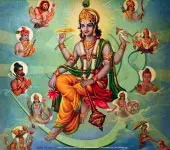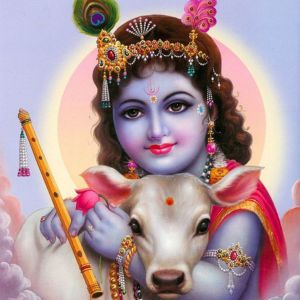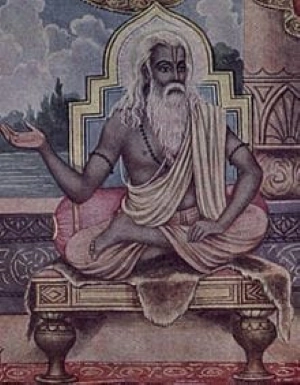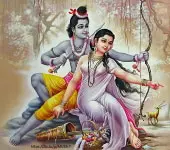Position Of Sages In Ancient Bharata
Quiz
Who received Bala and Atibala Mantras from Vishwamitra?Transcript
(Click here to read more)
What is the purpose of an avatara? साधुपरित्राणम् दुष्कृद्विनाशनम् धर्मसंस्थापनम् Protection of the noble. Whom do the noble need protection from? From the evil. It is the very nature of the evil forces to harm the noble. The noble need to be protected from them. This can be achieved mainly by destroying the evil. Transforming them through good advice does happen, but it is very rare. Bhagavan takes avatara only when the si....
Transcript
(Click here)
What is the purpose of an avatara?
साधुपरित्राणम्
दुष्कृद्विनाशनम्
धर्मसंस्थापनम्
Protection of the noble.
Whom do the noble need protection from?
From the evil.
It is the very nature of the evil forces to harm the noble.
The noble need to be protected from them.
This can be achieved mainly by destroying the evil.
Transforming them through good advice does happen, but it is very rare.
Bhagavan takes avatara only when the situation is very bad.
In the normal course, there are checks and balances within the system.
Like how we have the law enforcement system today.
It is a very efficient way to curtail the evil and protect the noble.
Bhagavan takes avatara in extreme situations.
When the system can not handle it on its own.
He has only put the system in place.
When he sees that the situation calls for his personal involvement, he takes avatara.
Devas wanted him to take avatara to eliminate the trouble from Ravana.
But he is not going to limit it to that.
We have seen earlier that instead of just Sri Rama, the avatara was Chaturvyuha - Rama, Lakshmana, Bharata, and Shatrughna.
He had three more things in his agenda, one assigned to each of his brothers.
Killing Ravana's son, killing Lavanasura, and defeating the Gandharvas.
Now here is the very first time when Sri Ramji is demonstrating the purpose of avatara, by helping Sage Vishwamitra.
The princes had grown up.
One day, Dasharatha along with his gurus, ministers, relatives, and well-wishers was discussing about their marriage, finding suitable brides for the four princes.
At that time, Sage Vishwamitra arrived at the gate.
The Rishi told the guards at the gate: Inform the king that Gadhi's son born in Kushika gotra has come.
They rushed to the palace.
Everyone knew how powerful the Sage was.
If there is a delay he might get angry and burn them down to ashes.
In no time they reached the palace and informed Dasharatha.
Dasharatha also stood up and rushed to the gate along with his purohitas.
Why, couldn't Vishwamitra have just walked into the palace?
Who would dare to stop him?
No.
There is protocol.
The king himself has to come and take him to the palace.
That is the protocol.
Not only that, the king has to offer arghya.
You must be familiar with this term.
It is one of the upacharas offered in puja.
Padyam samarpayami. arghyam samarpayami.
It is a cup of water mixed with sandal and such other divine materials.
It is a sign of respect.
Dignitaries should be welcomed by offering arghya.
In puja also you see, after washing God's feet, arghya is offered.
This is protocol.
If the king himself doesn't come or does not offer arghya, then the guest is going to be offended.
You can imagine the position of the Sages in our society.
Vishwamitra observed severe tapas.
He was as brilliant as fire.
Vishwamitra enquired about Dasharatha's well-being.
What is a king's well-being?
This is also protocol.
You should not ask a king how is your health.
कुशलं चाव्ययं चैव पर्यपृच्छन्नराधिपम्।
पुरे कोशे जनपदे बान्धवेषु सुहृत्सु च।
अपि ते सन्नताः सर्वे सामन्ताः रिपवो जिताः।
Kushala has two meanings - gain of wealth like never before.
A king needs a lot of wealth for the well-being of his subjects.
And also kushala means free of troubles.
Are the chiefs of various divisions of your kingdom, are they under your command and control?
Those who tried to cause trouble, your enemies have you defeated them all?
Are you worshiping Devatas properly?
Are you taking care of your guests?
Then Vishwamitra went to Vasishta and other Rishis who had come with Dasharatha and enquired about their well-being in the appropriate way, as per protocol.
Then they all went to the court.
Dasharatha was very happy to see the Sage and he expressed himself.
This is like I have got amrita, I am so lucky.
This is as if it is raining in a parched land.
This is like someone is childless for a long time and then he gets a child.
That is the level of happiness.
This is like some treasure is lost and then it is recovered.
Vishwamitra's arrival is like this.
With whatever purpose you have come, I will fulfill it.
I am blessed, my life has become meaningful today.
My kingdom has today become a teertha, a kshetra, a holy place because of your arrival.
I am so happy.
There are two types of holy places, sthavara, and jangama, immovable and movable.
Immovable means places such as Kashi, and Haridwar.
Movable means holy noble people.
Wherever they are that place becomes holy because of their presence.
Now that Vishwamitra is in Ayodhya, Dasharatha is saying that Ayodhya has become a kshetra.
Please tell me what you have come for.
Allow me to be of service to you.
Please allow me to fulfill the purpose of your visit.
Dasharatha told Vishwamitra.
He is yet unaware what the Sage is going to ask.
Recommended for you
Gopikas are jealous about Bhumi Devi and even lightning
 Click here to know more..
Click here to know more..
Mantra For Success With People

गोपालाकाय विद्महे गोपीप्रियाय धीमहि तन्नो गोपालकृष्णः ....
Click here to know more..Guru Ashtakam

शरीरं सुरूपं तथा वा कलत्रं यशश्चारु चित्रं धनं मेरुतुल्�....
Click here to know more..
English Topics
Ramayana
Click on any topic to open
- 50 Janaka's Spiritual Evolution - From Jnana to Bhakti
- 49 Dasharatha's Grief Decoded
- 48 Shiva burned Kamadeva at Chhapra, Bihar
- 47 Motherhood brilliance - Kausalya Supraja Rama
- 46 Bala and Atibala Mantras - Sriram Ji will unfold their superpower
- 45 Dasharatha Pleads With Vishwamtra Not To Take Away Young Sriram Ji
- 44 Abandoning Of Sita Devi - Is It Justifiable?
- 43 Vishwamitra Wants To Take Young Sriram Ji With Him
- 42 Position Of Sages In Ancient Bharata
- 41 Horoscope of Sriram Ji
Please wait while the audio list loads..
30
Ganapathy
Shiva
Hanuman
Devi
Vishnu Sahasranama
Mahabharatam
Practical Wisdom
Yoga Vasishta
Vedas
Rituals
Rare Topics
Devi Mahatmyam
Glory of Venkatesha
Shani Mahatmya
Story of Sri Yantra
Rudram Explained
Atharva Sheersha
Sri Suktam
Kathopanishad
Ramayana
Mystique
Mantra Shastra
Bharat Matha
Bhagavatam
Astrology
Temples
Spiritual books
Purana Stories
Festivals
Sages and Saints

